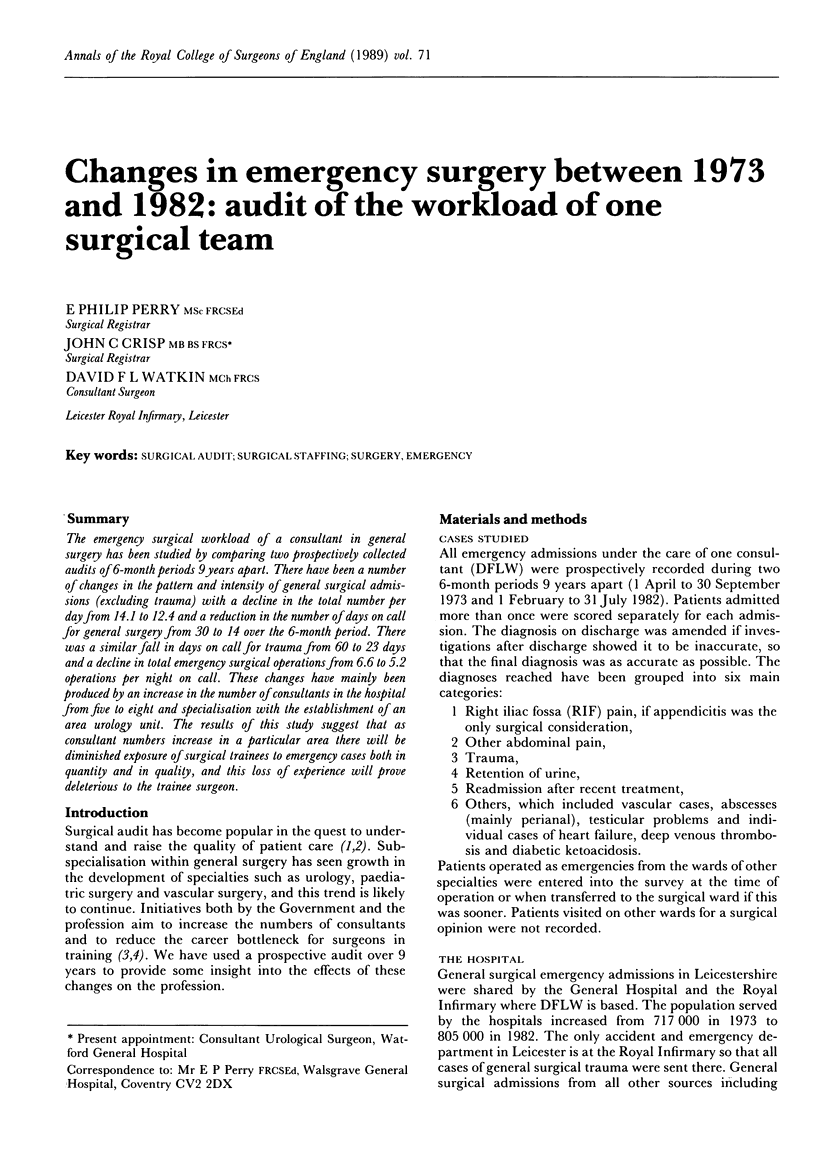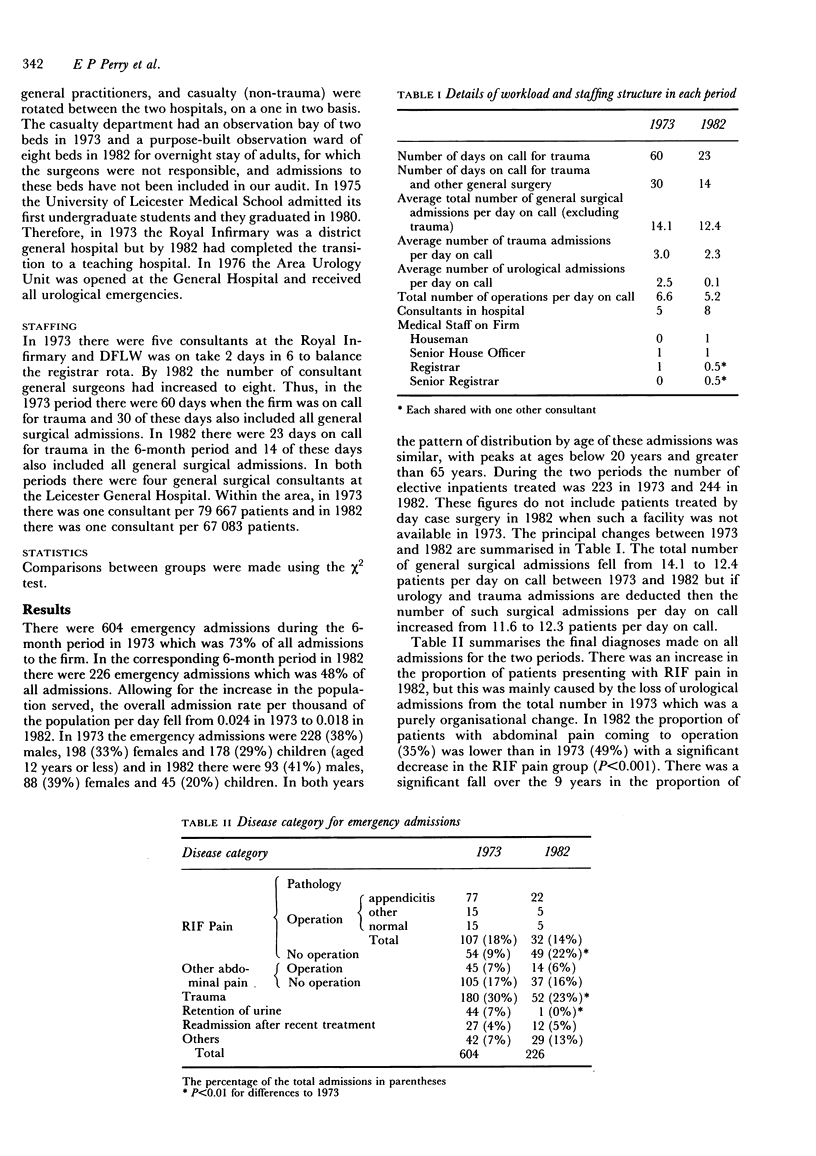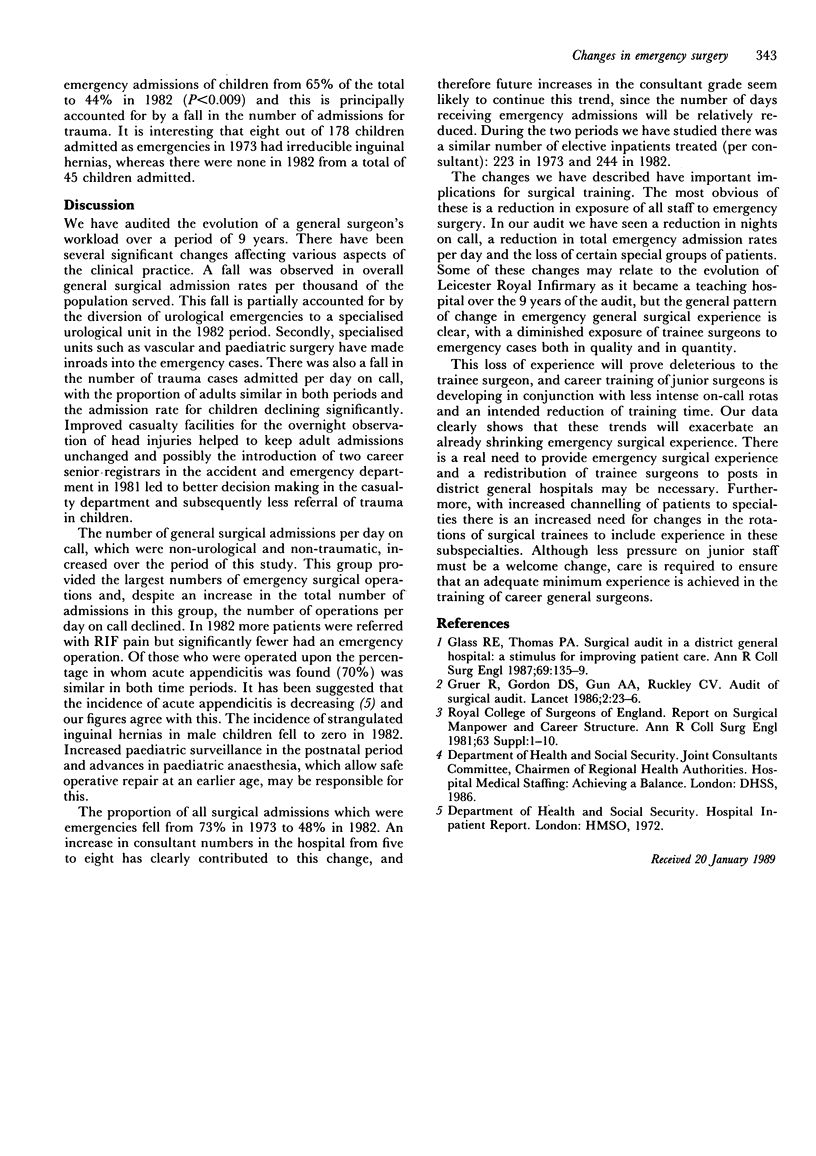Abstract
The emergency surgical workload of a consultant in general surgery has been studied by comparing two prospectively collected audits of 6-month periods 9 years apart. There have been a number of changes in the pattern and intensity of general surgical admissions (excluding trauma) with a decline in the total number per day from 14.1 to 12.4 and a reduction in the number of days on call for general surgery from 30 to 14 over the 6-month period. There was a similar fall in days on call for trauma from 60 to 23 days and a decline in total emergency surgical operations from 6.6 to 5.2 operations per night on call. These changes have mainly been produced by an increase in the number of consultants in the hospital from five to eight and specialisation with the establishment of an area urology unit. The results of this study suggest that as consultant numbers increase in a particular area there will be diminished exposure of surgical trainees to emergency cases both in quantity and in quality, and this loss of experience will prove deleterious to the trainee surgeon.
Full text
PDF


Selected References
These references are in PubMed. This may not be the complete list of references from this article.
- Glass R. E., Thomas P. A. Surgical audit in a district general hospital: a stimulus for improving patient care. Ann R Coll Surg Engl. 1987 May;69(3):135–139. [PMC free article] [PubMed] [Google Scholar]
- Gruer R., Gordon D. S., Gunn A. A., Ruckley C. V. Audit of surgical audit. Lancet. 1986 Jan 4;1(8471):23–26. doi: 10.1016/s0140-6736(86)91903-3. [DOI] [PubMed] [Google Scholar]


